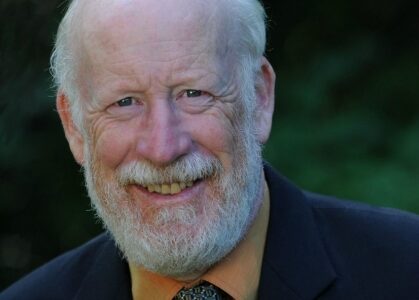Nelson Development Politics and the Illusion of Progressivism
I begin by citing the conclusions to my own two most-recent columns.
I think humans are changing, and so the issues may look very like issues that have been with us over the centuries – but they will be different because we are different. And the main reason for our difference from past humans is our technologies of information. They not only inform us – all the array of media and devices to bring data to our minds through screens and audio methods – they form us.
A new human walks the earth today — a human whose consciousness is surrendered to electronic assistance. We are altering our consciousness, we are losing the capacity for memory, we are living in virtual realities and becoming enfeebled at dealing with physical reality, such as person-to-person, face-to-face social interaction.
In such a new human condition, the survival of Canada as a single, unified nation-state seems to me of decidedly less global significance. If the people of Quebec, whom we in our wisdom have deemed a “nation” called “Quebecois” by a Parliamentary resolution, choose to have a “sovereign nation” independent of Canada – how important is that, really? No more than Ukraine’s status matters really to us.
I am attached to the quality of life I have enjoyed in Canada as it is, with Quebec as part of it. I would wish it for my children’s children. But Canada is not especially protected against change. It can evolve, and lose parts. It can become more enmeshed and absorbed by the year into its mighty American neighbor, and it has been doing so all my life. That is not a tragedy.
The tragedy of humanity today is much more profound than what Canadians, among the most fortunate people on the planet, do or do not do to maintain a united distinct nation-state. What we are doing to our planet, to its many species of life, and to ourselves and our minds, is exponentially more important in the cosmic scheme.”
The foregoing was from the March 11 column. The next quotation is from last month’s column.
” ‘You are a spirit, experiencing the condition of being human in a material existence. You are a spirit/matter experiment.’
For me, at this time of my life, this is the premise I choose as a defining condition of living as a human. Government and politics and politicians do not seem as important to me now as once they did. They do not touch the most important aspects of life.
This brings me to Nelson
I arrived in Nelson at the end of summer in 1987. Immediately, within three months, I had written a piece for a local paper entitled, “Urban Refugees: how to stop them spoiling Nelson.”
My preoccupation then was development of our city’s properties and the effect of an influx of new residents that would alter the quality of life of this rural idyll where we live close to the natural world.
Since then I have become more fascinated by the inner space of human consciousness, and how the world we make is made by the world inside our minds and hearts. Politics reflects us. We get the quality of government and government action that we deserve, in a sense. We say in Nelson that we create reality by our thinking. This could be abused; it is cited to justify blaming individuals for their poverty, poor health or misfortunes — indeed, I have heard this kind of conversation in our town not a few times.
But there is a core truth in the notion that our politics and politicians here, and the development of Nelson into a lifestyle community marketed to urban hipsters, is what we create by a collective mentality, the thinking of the inhabitants here. This little city has been in process of becoming no different in quality than many another small place with some fine historic buildings, a good location by water, with mountains in view and a lot of wide open spaces not so far from town: Nelson grows. We passed the 10,000 population mark recently, and our mayor was jubilant.
Growth is the unaltering fact of Nelson. It is the vision of our politicians and developers and business people. And I loathe that mindset. In the era when planet Earth is undergoing the Sixth Great Extinction*, and adding humans to the land is not a positive in any way that is wise and spiritually-nurturing, our policy is to grow this city.
There is a multitude of voices writing and speaking about the fundamental madness of the growth mentality and the economy it sustains. Charles Eisenstein is a personal favourite among those voices; Jane Jacobs, Christopher Hedges and Joseph C. Pearce are others.
Nelson just “does not get it” — the development mind is dying, and must for the good of the planet. Nelson wants to be one of the last places to keep it alive, apparently.
What kind of people make Nelson grow?
I cited myself above, writing about the new kind of human today, shaped and transformed by technology. Technology empowers capitalism, and has always done so since the Renaissance; in Nelson we see that effect in how we can build new homes anywhere we desire, geography be damned, so long as we put enough money into them. And technology allows for new businesses, at-home on-line self-employed market-smart entrepreneurs with global reach thanks to the internet and air travel.
I would stop Nelson growing if I could. And stop adding to the population of the Valley and the East Shore and the entire West and East Kootenays. “If I had my druthers” I would enact policy to make development of more than one home at a time extremely difficult. There are towns that have done this. Sometimes such a policy only makes it more likely that new development mushrooms beyond the city limits, so my fantasy would empower me to stop pro-development policy all over the region. An enlightened autocrat, a tyrant for good, a benevolent despot — this is the mould I would try to fit!
The unfairness of my attitude to newcomers
When I speak like this, I frequently am challenged by this question: “Why should you have the right to move here and other people not?” This is not the clever final argument to shut me up that some suppose it to be. But people often do not like my answer and do not want to accept my premise.
There is another kind of new human abroad, one not made by the new technologies but by the new spirituality arising from planetary crisis. I count myself among the latter. We reject materialism, capitalism, and growth.
I would never wish to prevent certain persons coming to Nelson. Who do I mean? I do not want the people who would come to live in our new developments on the former KFP waterfront, or in Fairview Heights, or Perrier Road village, or Granite Pointe golf course. That is not why I came. The people I would welcome would come as I came, for my reasons, to do as I did.
I arrived poor and have rented a home ever since. I came when Nelson was in the nadir of its fortunes, having lost population in the ’80’s due to the closure of KFP and the University. I have not made Nelson grow by any plan I had for a business, a housing development or investment in infrastructure to make travel easier around our area. I am not a member of the Religion of Progress.
I have wanted Nelson to stay as it was when I got here. I lived a working life here.
I did not first amass a small fortune in urban business of dubious human worth, to come and build my expensive retreat from the ugly outside world. I did not sell my property at inflated prices in the city and arrive with the profit. Our newcomers are like that. Note that the ugly world they left behind was made by the very capitalism that had privileged them and their particular marketable skills and profit-making schemes.
The inconvenient truth of prosperity
Here it is, like it or not. If your income has been well above the average and you have earned even more by investments, you are part of the world’s problem, not its solution. Capitalism has infected the way we think, and it is unthinkable for many to accept that what I say is true. Some people in some other lands must be losing so that the rich world can be winning in the race of development. I am not spouting the discredited idea of Marxian “man’s exploitation by man.” I am stating what dispassionate scientists who study human history since the Industrial Revolution are agreed upon. It is impossible for humanity to live at the “standard of living” of middle-class Canadians. There is not enough planet to go ’round. The Chinese and Indians who strive toward our level do not want to hear that. They keep rising, as they see it.
Bringing it home
To the elite of Nelson, the millionaires and near-millionaires who are more common in our region than is usually spoken about, I have to say this. Your progressive politics are a sham, a facade over the face of the ugly truth that you have prospered in a system that is immoral at its foundation. NDP socialists, feminists, environmentalists, sexual-liberationists, Vegans, yoga/healthfood faddists — a host of folks who take the progressive position on an array of subjects — cannot alter the fact: the fact of having a lot when most have little.
“I worked hard for my prosperity, my property and my privileges. I manifested it all by my labour and my appropriately-positive thinking. I am spiritual (not religious) and I am a humanitarian. I created this reality in which I am affluent.” Those are the words of people I criticize for having too much.
Nelson is growing because such people as these I describe desire the good life they see here. And there are many people who will develop the homes and businesses and services to please the urban refugees who are coming to live here. Someone just getting started on their own path to affluence needs the money brought by the refugees. The circle is completed. Growth starts another round.
The irony of Nelson also attracting a disproportionately-high homeless and impoverished segment of society is not hard to see. Baker St. in summer, and the hidden campsites of the homeless all around our borders, is evidence of Nelson’s reputation as an appropriate place to be poor.
A lot could be said about the incongruity of wealth and poverty juxtaposed in Nelson. But I have said sufficient.
Conclusion
Nelson will not be an exception. It will grow. The economy will determine how big, and new technology too will be a formative force determining its size. The ultimate fate of our town in its second century is absolutely bound up with the denouement of planetary crises working their way to some terminus: negative climate changes, epidemic diseases, collapse of capitalist economics, political crisis arising from all this (including in all probability a major war as the elites try to stave off Revolution) — these are the factors that will write Nelson’s wyrrd on the wall.
*See the book review in the current issue of Harpers’ magazine of Elizabeth Kolbert’s book, The Sixth Great Extinction. The writing is excellent, the conclusions compelling.
Charles Jeanes is a Nelson-based writer. The previous edition of Arc of the Cognizant can be found here.
























